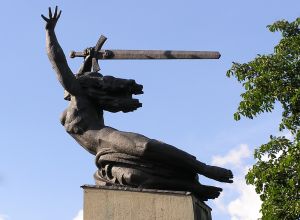

THE fight against Linux/Android meets an impasse as certain vital patents lose their teeth.
Judge Alsup is ready to get on with it, and to that end he has set this case for trial beginning April 16, 2012. (786 [PDF; Text]) He is anticipating an eight week trial, which will be brutal on the jurors. To that end the potential jurors will be pre-cleared to assure their availability. The judge has also asked Google to withdraw those invalidity arguments it has asserted in reexmination that have not been adopted by the USPTO. Clearly, he does not want to hear them.
What set the stage for the trial to move forward was the Court's decision on Dr. Cockburn's third attempt at a damages report. (785 [PDF; Text]) And like they say in baseball, "Strike three!" Actually, the Court did not reject all of the third attempt, simply most of it and certainly all of the parts of it that most troubled Google.
The Software Patent War Escalates
[...]
The people doing this advocacy used to work for industry consortia like the BSA, but increasingly they are twice removed from them to avoid easy connections being made. Politicians and civil servants may be unable to identify the links back to industry in these cases, and are consequently surprised when opposition appears as if from nowhere. They are being told by whisper campaigns that powerful newcomers like Google are behind this opposition.
It's taking quite some time for the realisation to dawn that the opposition to draconian and toxic escalations to copyright and patent law is not being orchestrated by any corporation. Rather, the connected society is providing a voice for citizen consensus, perhaps for the first time since ancient Athenian democracy. Thank goodness for that openness; no wonder lobbyists and paid consultants are working to limit that too.
Now, I’ve always hated the idea of software patents. But Yahoo assured us that their patent portfolio was a precautionary measure, to defend against patent trolls and others who might try to attack Yahoo with their own holdings. It was a cold war, stockpiling patents instead of nuclear arms, and every company in the valley had a bunker full of them.
Against my better judgement, I sat in a conference room with my co-founders and a couple of patent attorneys and told them what we’d created. They took notes and created nonsensical documents that I still can’t make sense of. In all, I helped Yahoo file eight patent applications.
Years after I left I discovered to my dismay that four of them were granted by the U.S. Patent and Trade Office.
I thought I was giving them a shield, but turns out I gave them a missile with my name permanently engraved on it.